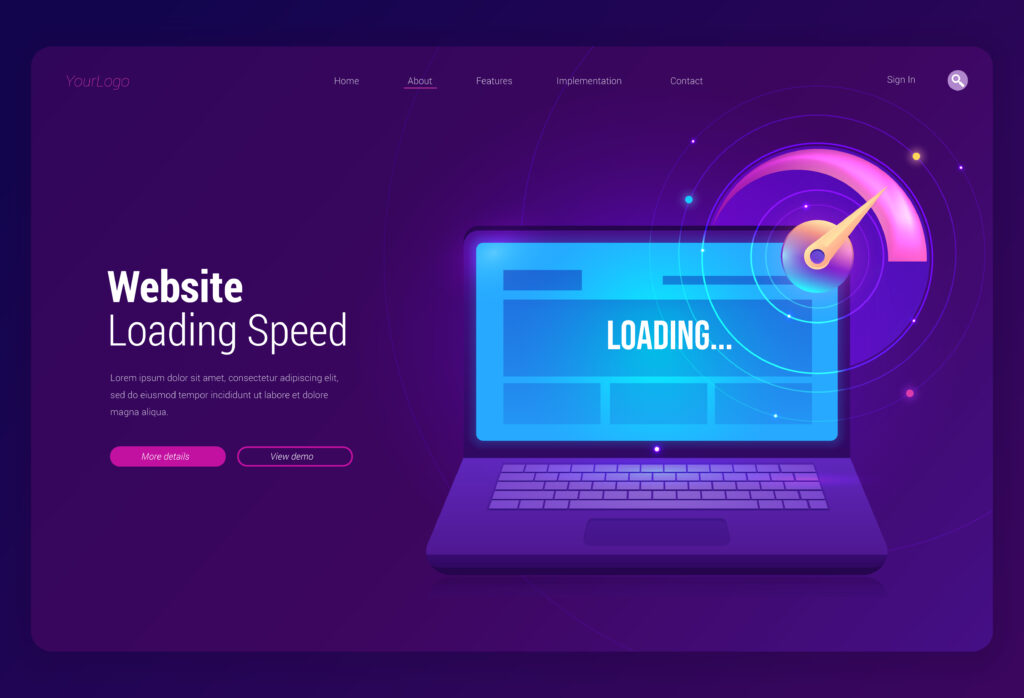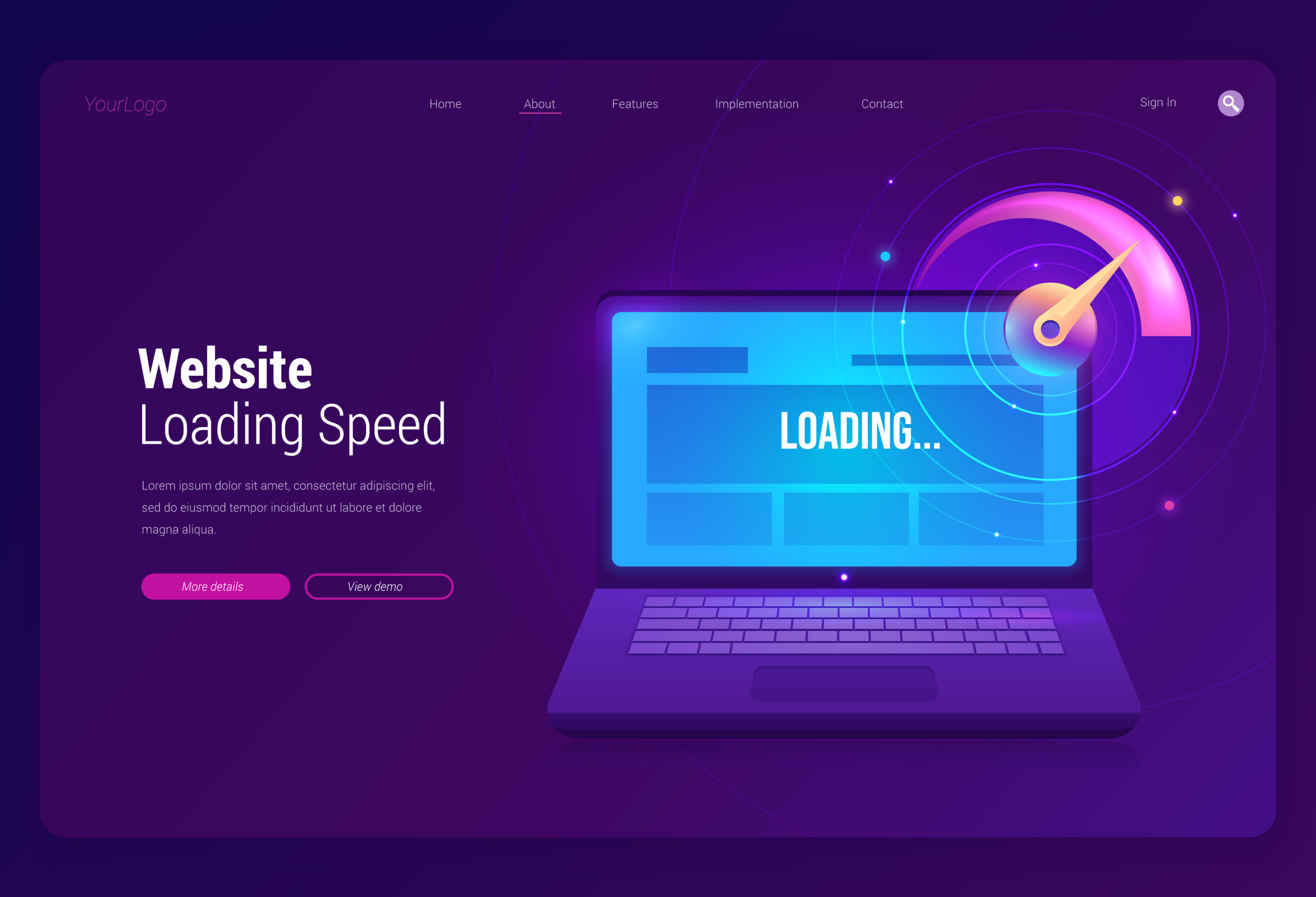Website speed and performance are crucial factors for both user experience and search engine optimization (SEO). A slow-loading website not only frustrates users but also affects your search rankings, leading to lower traffic and reduced conversions. With Google prioritizing speed in its ranking algorithm, businesses must ensure their websites load quickly and efficiently. This article explores why website speed and performance matter for SEO and how to optimize them.

1. Impact on Search Engine Rankings
Google considers page speed as a ranking factor, meaning that faster websites have a higher chance of appearing at the top of search results. Slow websites lead to higher bounce rates, which signals to search engines that users are dissatisfied. This can negatively impact your rankings, making it harder for potential customers to find you online.
2. User Experience and Engagement
A slow website drives users away. Studies show that users expect a website to load within two to three seconds. If it takes longer, they are likely to abandon the page. Poor loading times lead to a higher bounce rate and lower engagement, which can harm your business’s credibility and conversions. A fast website enhances user satisfaction, increasing the likelihood of users staying longer and interacting with your content.
3. Mobile Optimization
With the rise of mobile browsing, website speed is more important than ever. Google’s mobile-first indexing means that your mobile site’s performance directly affects your search rankings. Slow mobile websites result in poor user experiences, leading to lower traffic and fewer conversions. Ensuring your website is mobile-friendly and loads quickly on all devices is crucial for SEO success.
4. Conversion Rates and Revenue
Website speed directly impacts conversion rates. Studies reveal that even a one-second delay in loading time can reduce conversions by 7%. If an e-commerce site makes $100,000 per day, a one-second delay could cost $2.5 million in lost sales annually. A faster website leads to higher customer satisfaction, increased trust, and ultimately, more sales.
5. How to Improve Website Speed for Better SEO
Optimize Images
Large image files slow down page loading times. Use image compression tools like TinyPNG or WebP format to reduce file sizes without sacrificing quality.
Enable Browser Caching
Caching allows browsers to store parts of your website, so returning visitors experience faster load times. Set up browser caching through your server settings or a caching plugin if using WordPress.
Minimize HTTP Requests
Reduce the number of elements on a page, such as scripts, images, and CSS files. Combining multiple files into one can help reduce HTTP requests and speed up loading time.
Use a Content Delivery Network (CDN)
A CDN distributes your website’s content across multiple servers worldwide, reducing the time it takes for users to access your site, regardless of their location.
Optimize Code and Scripts
Minify CSS, JavaScript, and HTML files to remove unnecessary characters and spaces. This makes your code more efficient and improves page speed.
Choose a Reliable Web Hosting Provider
Your hosting service plays a major role in your website’s performance. Invest in a high-performance hosting provider that offers fast servers and uptime reliability.
Implement Lazy Loading
Lazy loading defers the loading of images and videos until they are needed, reducing initial load times and improving user experience.
Conclusion
Website speed and performance are critical for SEO, user experience, and business success. A slow-loading website not only frustrates visitors but also negatively impacts search rankings and conversion rates. By optimizing images, enabling caching, reducing HTTP requests, and investing in a reliable hosting provider, businesses can enhance website speed and improve overall performance. Prioritizing website speed will lead to better SEO rankings, increased engagement, and higher conversions, ensuring long-term success online.


